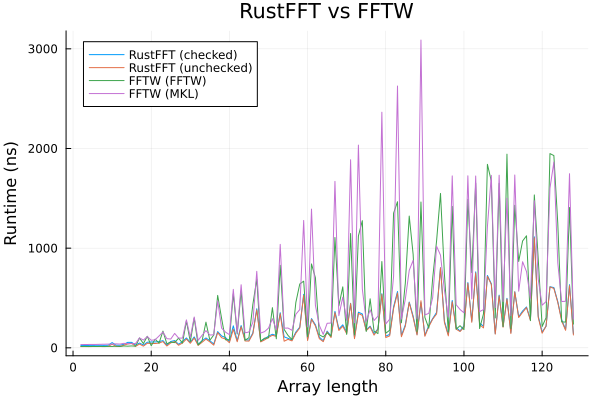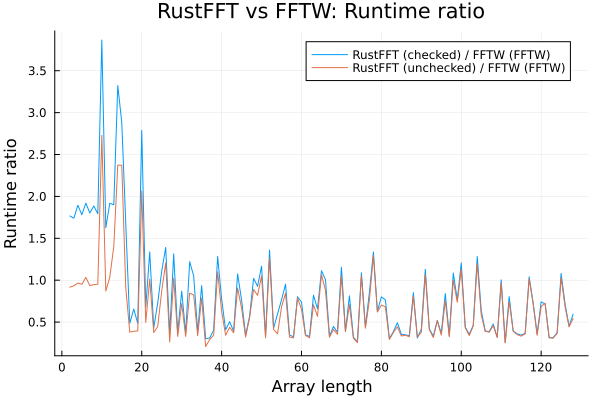RustFFT.jl
Compute FFTs in Julia using RustFFT. Some parts of this documentation have been quoted from the RustFFT docs.
RustFFT is a high-performance, SIMD-accelerated FFT library written in pure Rust. It can compute FFTs of any size, including prime-number sizes, in O(nlogn) time.
Usage
RustFFT.jl implements the generic FFT interface of AbstractFFTs.jl but only supports one-dimensional, complex-valued arrays: Vector{ComplexF64} and Vector{ComplexF32}.
Forward and inverse FFT:
using RustFFT
data = ones(ComplexF64, 1)
fft!(data)using RustFFT
data = ones(ComplexF64, 1)
ifft!(data)You can set several options by planning the FFT:
using RustFFT
planner = new_planner(ComplexF64)
data = ones(ComplexF64, 1)
plan = plan_fft!(data; rustfft_checks=IgnoreArrayChecks(), rustfft_gcsafe=GcSafe(), rustfft_planner=planner)
plan * dataIt's currently not possible to choose the specific algorithm that will be used to compute the transform.
Benchmarks
RustFFT has been benchmarked against FFTW on a PC with the following specs:
OS: Ubuntu 22.04.2 LTS
CPU: Intel Core i7-12700H
RAM: 32GB
Julia: 1.9.2
FFTW.jl: 1.7.1
RustFFT.jl: 0.2.0
The benchmarks performed the following benchmark, with j ranging from 2 up to and including 128 in steps of 1, and from 256 up to and including 4096 in steps of 256:
@btime plan * data setup = (data = ones(ComplexF64, j); plan = plan_fft!(data))The unchecked results were collected with the following code:
const planner64 = new_planner(ComplexF64)
@btime plan * data setup = (data = ones(ComplexF64, j); plan = plan_fft!(data; rustfft_checks=IgnoreArrayChecks(), rustfft_planner=planner64))


